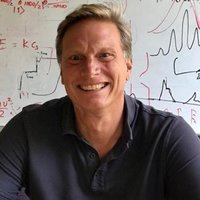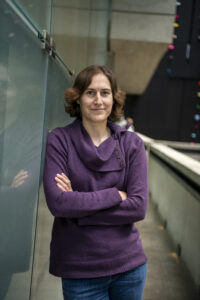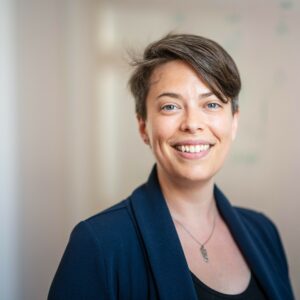More speakers will be added as they are confirmed.
Herzberg Memorial Public Lecture:
Monday, June 19, 19h30-20h30

Dr. Mark Kasevich
Stanford University
Mark Kasevich is a Professor of Physics and Applied Physics at Stanford University. He received his B.A. degree (1985) in Physics from Dartmouth College, a B.A. (1987) in Physics and Philosophy from Oxford University as a Rhodes Scholar, and his Ph.D. (1992) in Applied Physics from Stanford University. He joined the Stanford Physics Department faculty in 1992. From 1997-2002, he was a member of the Yale Physics Department faculty. He returned to Stanford in 2002. His current research interests are centred on the development of quantum sensors of rotation and acceleration based on cold atoms, the application of these sensors to tests of General Relativity, the investigation of many-body quantum effects in Bose condensed vapours, the investigation of quantum-enhanced imaging and measurement methods, and investigation of ultra-fast laser-induced phenomena. He co-founded AOSense, Inc. (2004) and serves as the company’s Consulting Chief Scientist.
Gravitational Physics with Atom Interferometry
The notion of wave-particle duality is fundamental in the quantum mechanical description of matter. This duality asserts that matter sometimes behaves like a particle and sometimes behaves like a wave, called de Broglie waves. Recent advances in methods to coherently manipulate de Broglie waves of atoms have enabled a new generation of atom interferometers with unique capability to address outstanding fundamental science challenges. The method has emerged as a tool capable of addressing a diverse set of questions in gravitational physics and quantum physics, and as a technology for advanced sensors for navigation and for measurement of the Earth’s gravitational field. We will discuss an experiment consisting of a tungsten mass and atomic wave packets separated by about 25cm. In this experiment, the relative phase of the interfering wave packets is shown to depend on the gravitational interaction in a way which is analogous to the so-called Aharonov-Bohm effect for charged particles. We will describe the relevance of these results to observation of quantum superpositions of Newtonian gravitational fields. Future science and technology applications will also be described, including the detection of dark matter, detection of gravitational waves at frequencies below 1 Hz and satellite geodesy.
Medal talks return to Congress!
More information will be posted once the 2023 medal recipients have been selected.
Plenary Speakers:
(More to come!)

Dr. Katherine Mack | Perimeter Institute
Monday, June 19, 8h45-9h30
Dr. Katie Mack is a theoretical astrophysicist exploring a range of questions in cosmology, the study of the universe from beginning to end. She currently holds the position of Hawking Chair in Cosmology and Science Communication at the Perimeter Institute for Theoretical Physics, where she carries out research on dark matter and the early universe and works to make physics more accessible to the general public. She is the author of the book “The End of Everything (Astrophysically Speaking)” and has written for a number of popular publications, such as Scientific American, Slate, Sky & Telescope, Time, BBC Science Focus, and Cosmos magazine. She can be found on Twitter as @AstroKatie.
Dark Matter: A Cosmological Perspective
While it is considered to be one of the most promising hints of new physics beyond the Standard Model, dark matter is as yet known only through its gravitational influence on astronomical and cosmological observables. I will discuss our current best evidence for dark matter’s existence as well as the constraints that astrophysical probes can place on its properties while highlighting some tantalizing anomalies that could indicate non-gravitational dark matter interactions. Future observations, along with synergies between astrophysical and experimental searches, have the potential to illuminate dark matter’s fundamental nature and its influence on the evolution of matter in the cosmos from the first stars and galaxies to today.

Dr. Tanja Tajmel | Concordia University
Wednesday, June 21, 8h30-9h15
Dr. Tajmel is an Associate Professor at the Centre for Engineering in Society, Gina Cody School of Engineering and Computer Science, Concordia University, Montreal, and Special Advisor to the Dean, EDI (Equity, Diversity, Inclusion). She holds a Concordia University Research Chair (Tier 2) in “Equity, Diversity and Inclusion (EDI) in Science, Technology, Engineering and Mathematics (STEM)” and is leading the EDI Research Lab. Dr. Tajmel earned her Doctorate in Didactics of Physics at Humboldt-Universität zu Berlin (Germany) and a M.Sc. in Physics and Philosophy, Karl-Franzens-University Graz (Austria). For many years, Dr. Tajmel has been internationally engaged in developing and implementing non-discriminatory and inclusive principles in STEM fields. Her work focuses on studying the politics of science and technology through a hegemony-critical lens and on developing frameworks for socially equitable and responsible STEM research and education. Dr. Tajmel has been leading several inter- and transdisciplinary projects on the international level, amongst them a think tank project to advance the understanding of STEM education as a human right, published in the book “The Human Rights-Based Approach to STEM Education” (Tajmel, T., Starl, K. and Spintig, S. (eds.) 2021).
Decolonizing Light – Exploring Approaches to Decolonize Physics
In 2019, we, as a group of scholars and community members working in fields as different as Physics, First Peoples Studies, Science Education, Decolonizing Curriculum and Pedagogy, Environmental Science, and Science and Technology Studies, came together to explore ways of decolonizing physics. Funded by the New Frontiers in Research Fund (NFRF). We decided to exemplarily focus on light (rather than on optics, as optics is a physical field and narrows down the concept of light and what can be said about it) because light is ubiquitous in every society, language, and culture. In everyday life, light is a key element that defines familiar aspects like colour and warmth. In physics, light is exploited as the primary carrier of information about nature (e.g., in astronomy), and used as the primary probe for the fundamental properties of matter (e.g., in spectroscopy). Our work is guided by the principles of centring Indigenous concerns and creating meaningful research and educational opportunities that support Indigenous sovereignty, particularly with regard to physics and science. In this talk, I will present the work that has been done so far, as well as the challenges, the changes, the risks, and the rewards that we have been experiencing in and with our project. The talk will take the attendees on a journey of what we have learned, what the project has changed, and what changes we, from our perspective, consider necessary to pursue physics in a non-colonial way.

Dr. Jess McIver | University of British Columbia
Thursday, June 22, 16h30-17h15
Dr. Jess McIver is an assistant professor in the Department of Physics and Astronomy at the University of British Columbia and a Tier II Canada Research Chair in Gravitational Wave Astrophysics. She leads the UBC gravitational-wave astrophysics group, the UBC LIGO group, and the UBC-TRIUMF LISA group. She earned her PhD from the University of Massachusetts Amherst, and then went on to a postdoc with the LIGO Laboratory at Caltech. She has worked with the LIGO Scientific Collaboration since 2007 on the characterization of the Advanced LIGO detectors and astrophysical gravitational-wave data analysis.
New discoveries with gravitational waves
I will give an overview of gravitational-wave discoveries to date, and the advances in technology and data science that have enabled these early detections. I will summarize new physics that will be unlocked by future gravitational-wave detectors on Earth and in space.
